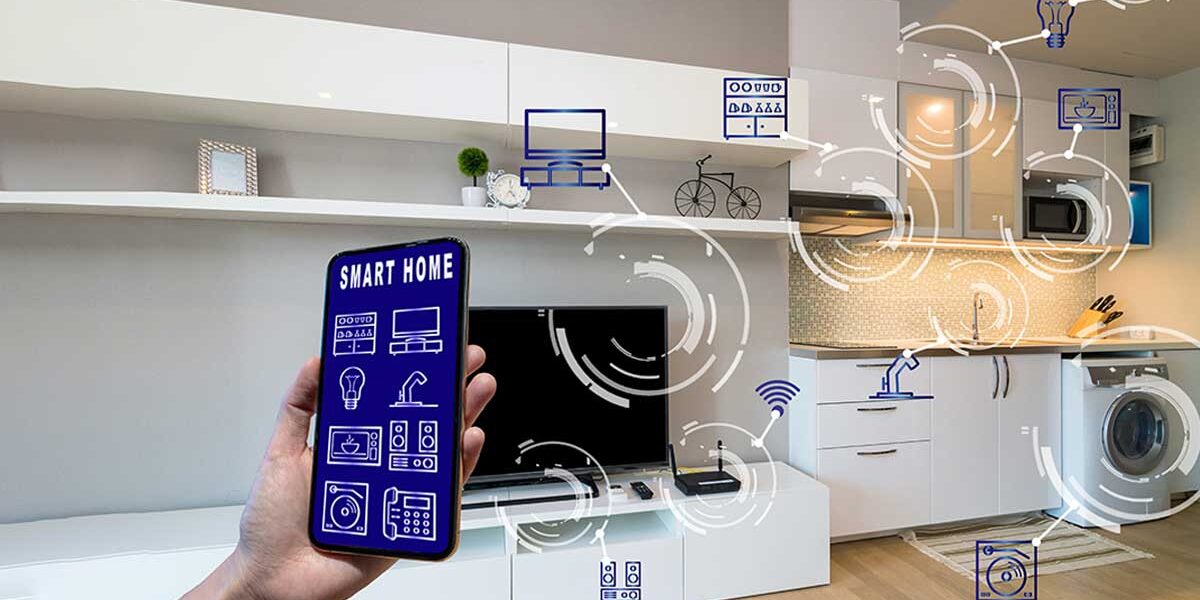In an era where convenience and efficiency are paramount, artificial intelligence (AI) has emerged as a game-changer in the realm of household gadgets. From robotic vacuum cleaners to smart thermostats, AI is not just reshaping how we manage our homes, it’s redefining the very fabric of daily living.
This article delves into how AI-enhanced gadgets are improving efficiency and comfort, simplifying tasks, and ensuring that homes are not only connected but also intuitively aligned with the lifestyles of their occupants.
Examples of AI in Home Gadgets
The integration of artificial intelligence into home gadgets is not just a trend but a revolution that’s making our homes smarter and our lives easier. TheTechKingdom has been at the forefront of this wave, incorporating AI technologies into a variety of home appliances. Here are some standout examples:
- Smart Thermostats: These devices learn from your habits and adjust your home’s temperature settings automatically. By analysing your schedule and the external weather patterns, they optimize energy use and enhance comfort without requiring manual input.
- AI-Powered Security Systems: Utilising facial recognition and motion detection algorithms, these systems provide enhanced security by distinguishing between residents and potential intruders. This allows for more accurate alerts and reduces false alarms.
- Robotic Vacuum Cleaners: Gone are the days of manual vacuuming. Today’s AI-driven vacuums can map your home, learn the most efficient cleaning routes, and even adjust their cleaning patterns based on the type of surface they are on.
- Smart Refrigerators: These refrigerators can keep track of your groceries, suggest recipes based on the ingredients available, and even order groceries for you. Their AI capabilities include recognising food items and monitoring expiration dates.
- Voice Assistants: Integrated into various devices, voice assistants can control lighting, play music, provide cooking instructions, and much more, all powered by AI to understand and anticipate your needs better.
User Concerns and Resolutions
As AI technology continues to advance and integrate into our daily lives, it brings not only benefits but also several concerns that users may have. Addressing these concerns effectively is crucial to ensure user trust and the successful adoption of the technology. Here’s how common concerns are being addressed:
- Privacy and Security: One of the foremost concerns with AI-driven gadgets is the potential for privacy invasion. To combat this, companies are implementing stronger data encryption, rigorous secure data storage practices, and transparent user agreements that clearly state how data will be used. Regular security updates and patches to AI devices also help mitigate any vulnerabilities.
- Data Bias and Fairness: AI systems are only as good as the data they are trained on, which can sometimes lead to biased or unfair outcomes. To resolve this, AI developers are using more diverse data sets for training algorithms and employing techniques that detect and correct bias within AI systems.
- Dependence on Technology: As gadgets become smarter, there’s a growing concern about over-reliance on technology. To address this, educational initiatives are encouraging more conscious usage of technology, emphasising the importance of maintaining skills that AI devices might otherwise overshadow.
- Job Displacement: AI in gadgets can lead to automation that may replace manual jobs, causing economic and social disruption. Companies are now working on strategies to repurpose labour and provide training for new roles in the tech-driven economy, helping to transition affected workers into new career paths.
- Complexity and Usability: Some users find AI gadgets overly complex. In response, companies are focusing on improving user interfaces and providing comprehensive user support and tutorials to enhance the accessibility and usability of AI technologies.
- Ethical Use of AI: The ethical implications of AI, including surveillance concerns or manipulation, are significant. Ongoing discussions and the development of AI ethics guidelines are crucial for ensuring that these technologies are used responsibly.
Future Trends in AI and Household Gadgets
The integration of AI into household gadgets is not just a passing trend, it’s a glimpse into a future where our homes are smarter, more efficient, and more responsive to our needs. Here are some of the key trends that are expected to shape the future of AI in home gadgets:
- Seamless Home Automation: Future AI will enable even more seamless integration of home automation systems, allowing devices to communicate with each other more effectively, from smart thermostats adjusting based on your schedule to refrigerators that can order groceries when supplies are low.
- Advanced Personalisation: AI is expected to offer more personalised experiences by learning from individual user behaviours and preferences. This could mean a home environment that adjusts not just to general needs but to individual moods and health requirements, such as lighting that adjusts to enhance mood or sleep.
- Energy Efficiency: AI-driven gadgets will play a crucial role in energy management, using predictive analytics to optimise energy consumption in real-time, significantly reducing waste and lowering costs.
- Health Monitoring: Integration of health monitoring in everyday household gadgets will increase, using AI to analyse data collected from devices like smart mirrors and bathroom scales to provide health insights and early warnings about potential health issues.
- Enhanced Security: AI will enhance home security systems with facial recognition, unusual activity detection, and predictive policing, where systems can forecast potential security threats and prevent them proactively.
- Robotic Companions and Helpers: The development of AI-driven robots for home use is expected to expand, offering help with daily chores, caregiving for the elderly or children, and even providing companionship.
- Ethical AI Development: As AI technology advances, there will be a stronger focus on ethical AI development to ensure privacy, security, and fairness in how AI systems operate within the home.
Thank you for joining us on this exploration of how artificial intelligence is revolutionising the world of household gadgets. As we’ve seen, AI not only brings innovation and convenience into our homes but also offers potential solutions to everyday challenges, making our living spaces smarter and more adaptive.






